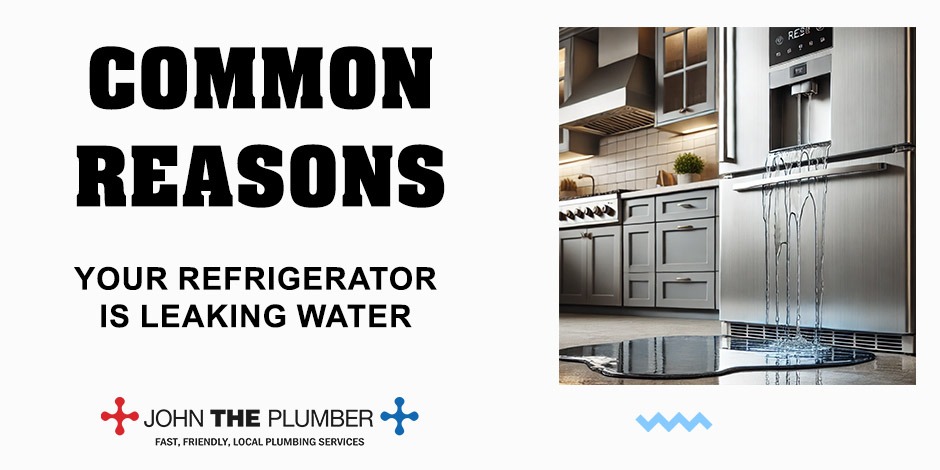Why Is My Fridge Leaking Water? Common Causes and Fixes
Finding a puddle of water on your kitchen floor can be frustrating, especially when it’s coming from your refrigerator, which can leak water for several reasons. If you’ve noticed your fridge leaking water inside or onto the floor, there could be several reasons why. From a blocked defrost drain to a damaged water supply line, understanding the cause is the first step in fixing the issue. Below, we’ll explore the most common reasons for a leaking fridge and how to resolve them.
Common Reasons Your Refrigerator Is Leaking Water
1. Blocked Defrost Drain
A blocked defrost drain is one of the most common causes of a refrigerator leaking water. The defrost drain hose allows excess water to drain away when the freezer defrosts. However, if food particles, ice, or other debris clog the drain hole, water can back up and leak onto the floor.
FIX:
- Flush the drain hole with warm water using a turkey baster or a pipe cleaner to remove the clog.
- If the blockage persists, check the defrost drain hose and clean it thoroughly.
- Regularly clean drains to prevent buildup and future leaks.
2. Cracked or Damaged Drain Pan
FIX:
- Carefully pull out the drain pan and inspect it for cracks or splits.
- If damaged, purchase a new pan and replace it.
- Make sure the drain pan evaporates properly by ensuring proper airflow around the appliance.
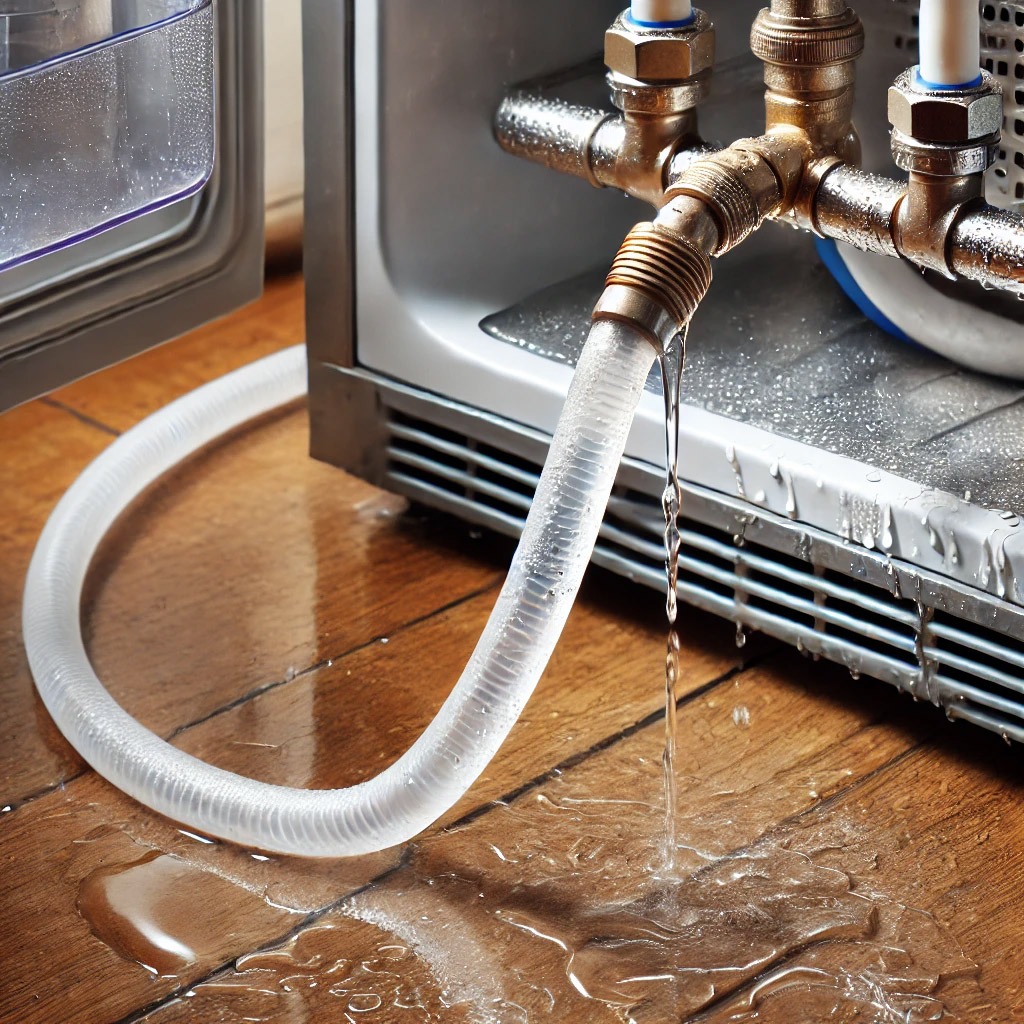
3. Leaking Water Supply Line
If your fridge has an ice maker or water dispenser, a leaking water line might be the culprit. A frozen water supply line, a loose connection, or a damaged water line can lead to water leaking around or behind the fridge.
FIX:
- Inspect the water supply line and the attached drain valve for leaks.
- Tighten any loose connections at the back of the refrigerator.
- If the water line is damaged, replace it entirely.
- If the water line is frozen, thaw it using hot water or by slightly increasing the temperature setting.
4. Improperly Installed or Faulty Water Filter
FIX:
- Remove the water filter and reinsert it properly, ensuring a tight seal.
- If the problem persists, replace the filter with a manufacturer-recommended version.
- Check the owner’s manual for the correct installation instructions.
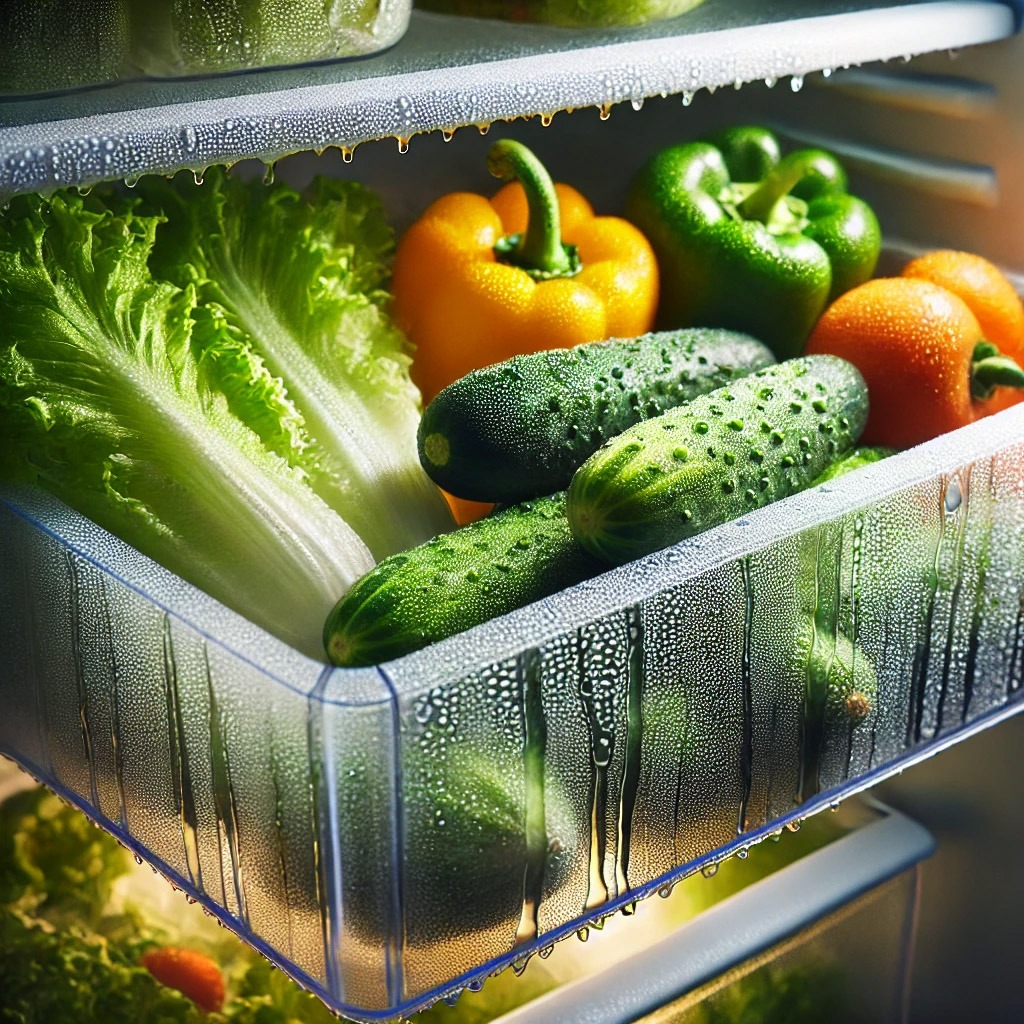
5. High Humidity and Condensation
During humid days, condensation can build up inside the fridge and overflow the drain pan. Excess condensation may also occur if the fridge door is left open for long periods, causing the unit to work harder and produce more moisture.
FIX:
- Keep the refrigerator door closed when not in use.
- Wipe away excess moisture with a clean cloth.
- If humidity is a frequent issue, consider using a dehumidifier in your kitchen.
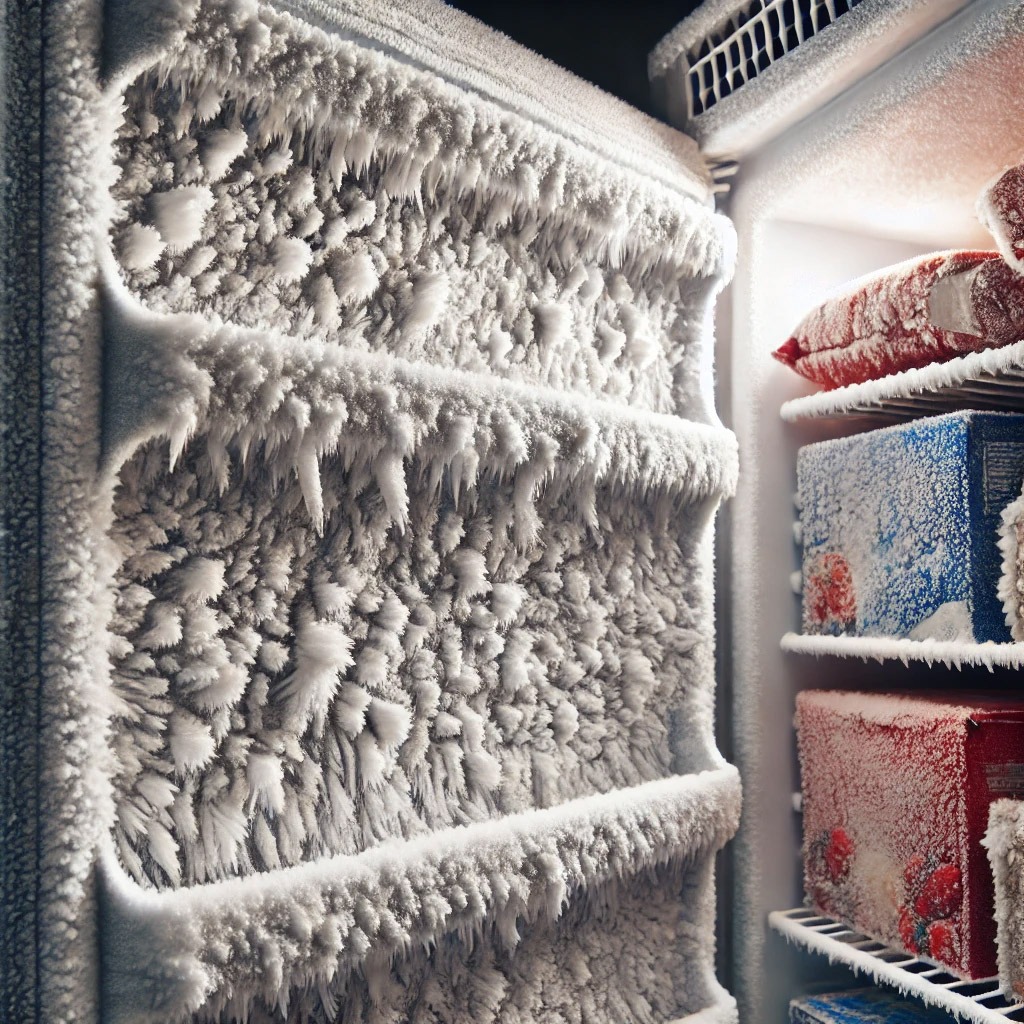
6. Frost Buildup in the Freezer Compartment
If ice is forming in your freezer compartment, it may indicate a problem with the evaporator coils or a clogged defrost drain. When ice melts, the water should flow to the drain pan, but blockages can cause it to pool inside the fridge instead.
FIX:
- Remove any visible ice buildup using warm water.
- Check that the evaporator coils and evaporator fins are clean and free of frost.
- Make sure the defrost drain is functioning properly.
7. Worn or Loose Door Gasket
A door gasket ensures an airtight seal between the fridge door and the unit. If the gasket is dirty, damaged, or loose, warm air can enter, leading to excess water inside the fridge and affecting ice production.
FIX:
- Clean the door gasket with soapy water to remove dirt and grime.
- If the gasket is worn or torn, replace it to restore the tight seal.
- Perform the dollar bill test: Close the fridge door on a dollar bill and pull it. If it slides out easily, the gasket needs replacing.
8. Clogged Drain Hose
The defrost drain hose removes melted ice from the fridge. A minor blockage or damaged drain hose can cause water to pool inside the fridge instead of draining properly.
FIX:
- Locate the drain hose, usually at the back wall of the fridge.
- Clean it using a pipe cleaner or warm water to remove any debris.
- If the hose is cracked or severely clogged, replace it.
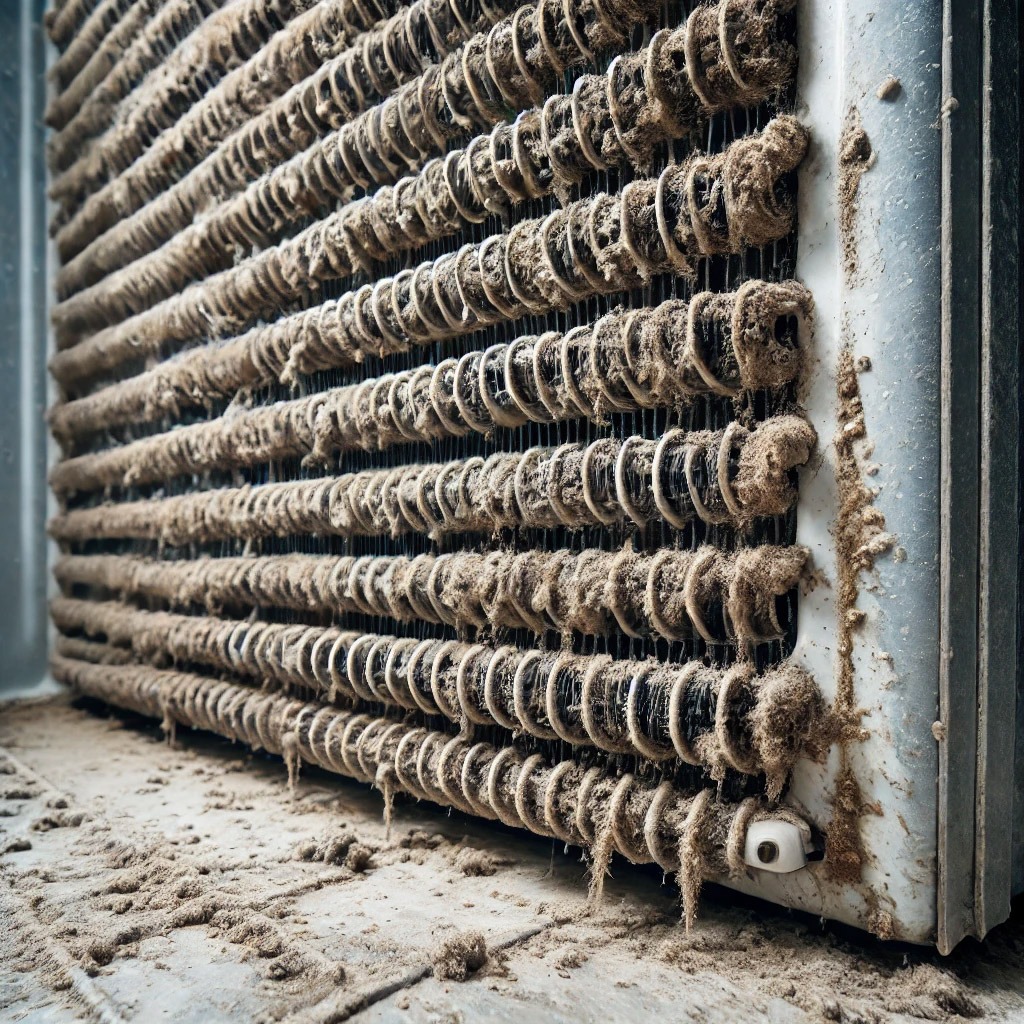
9. Issues with Condenser Coils
Dirty condenser coils prevent your fridge from cooling efficiently, leading to excess moisture and potential leaks.
FIX:
- Unplug the refrigerator and locate the condenser coils (typically located underneath or behind the unit).
- Use a vacuum or brush to remove dust and debris.
- Regular cleaning can prevent water from leaking inside the fridge.
When to Call an Appliance Repair Professional vs. When to Call a Plumber
While many refrigerator leaks can be fixed with DIY solutions, some issues require professional help. It’s important to understand whether the problem is related to the appliance or plumbing.
Call an Appliance Repair Technician:
Call a Plumber:
John The Plumber Ottawa is here to help with plumbing-related issues such as leaking water lines, clogged drains, and more. Contact us today to schedule an appointment!



